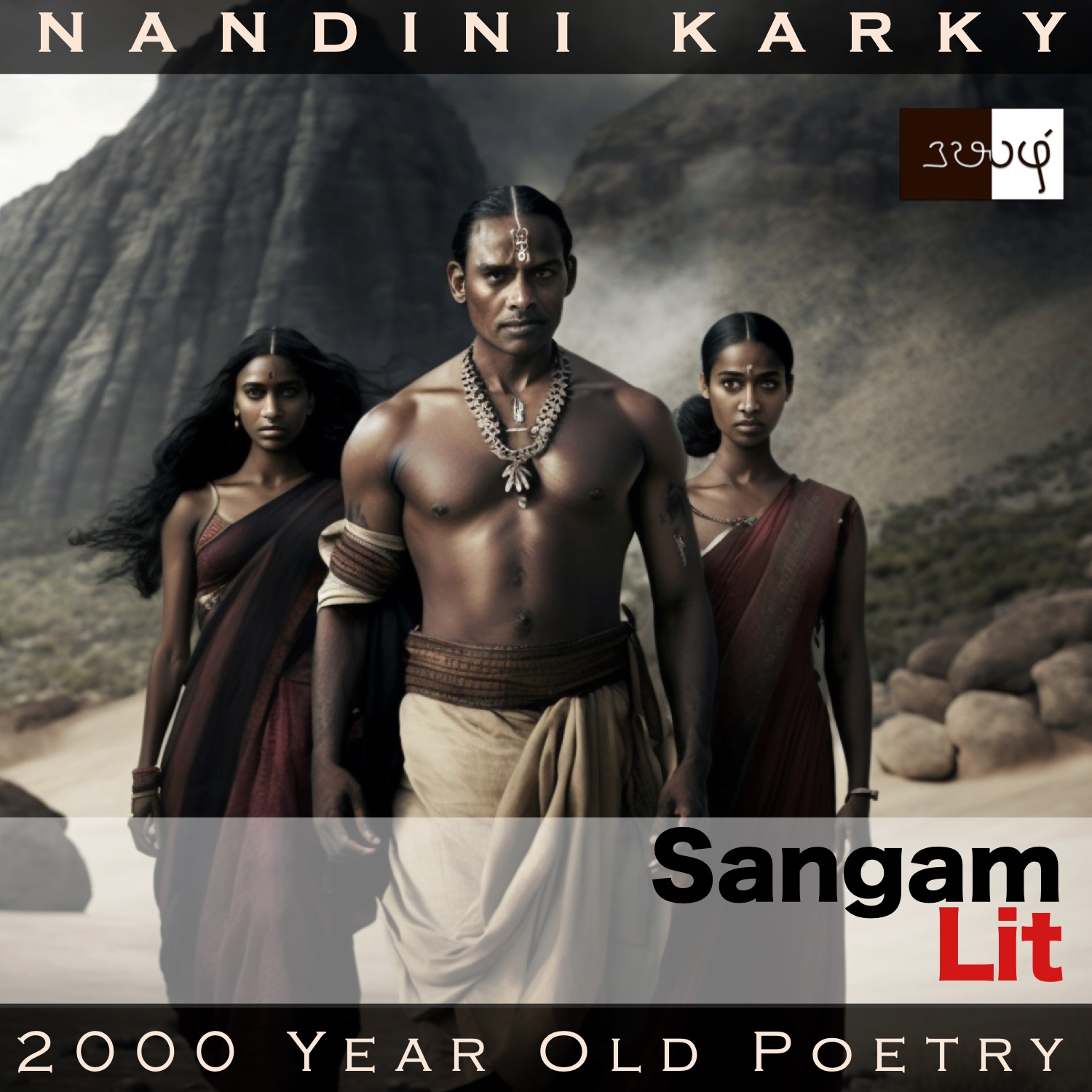Podcast: Play in new window | Download
Subscribe: Apple Podcasts | Spotify | Amazon Music | Android | iHeartRadio | TuneIn | RSS | More
In this episode, we listen to words expressing grief, as depicted in Sangam Literary work, Puranaanooru 113, penned about the Velir King Vel Paari by the poet Kabilar. Set in the category of ‘Pothuviyal Thinai’ or ‘miscellaneous matters’, the verse talks about the past prosperity of the land.

மட்டு வாய் திறப்பவும், மை விடை வீழ்ப்பவும்,
அட்டு ஆன்று ஆனாக் கொழுந் துவை ஊன் சோறும்
பெட்டாங்கு ஈயும் பெரு வளம் பழுனி,
நட்டனை மன்னோ, முன்னே; இனியே,
பாரி மாய்ந்தென, கலங்கிக் கையற்று,
நீர் வார் கண்ணேம் தொழுது நிற் பழிச்சிச்
சேறும் வாழியோ பெரும் பெயர்ப் பறம்பே!
கோல் திரள் முன் கைக் குறுந் தொடி மகளிர்
நாறு இருங் கூந்தல் கிழவரைப் படர்ந்தே.
Continuing in this series of songs on Vel Paari, we arrive in the presence of Kabilar’s sorrow in this one. The poet’s words can be translated as follows:
“Wine jars were opened; Sheep were slaughtered, and even as these were cooked, the volume reduced not and such fleshy meat rice was generously given, backed by immense wealth. You were such a friend to me back then; But now, since Paari has perished, confused and forsaken, with tears pouring down from the eyes, I bow before you, and singing your praises, I part away, O renowned Parambu! May you live long! I leave in search of husbands for these maiden, wearing small bangles on their forearms, and having thick, rounded shoulders and fragrant, dark tresses!”
Let’s explore the nuances herein. The poet starts by reminiscing about a time when there was copious shower of food and drink from the Parambu land. At this time, jars of toddy were opened and goats were cooked so as to render unto a huge crowd, meat and rice. Such was the wealth of that region, and such was the particular affection the region had for this poet. But now that the ruler of that land was dead, the poet could do nothing but shed copious tears, sing praises of that land, and part away. All his focus was now on finding the right husbands for Paari’s beautiful daughters, he concludes.
A verse that shows how this poet, a close friend of the king, was distraught after his loss, and yet, he saw what he must do, which was to take the king’s daughters to safety and then marry them to the right suitors. In short, he steps into the role of a father to these young girls, even while in the throes of grief over the loss of his friend. Insights about the need to focus on what needs to be done, no matter the pain in the heart, is illustrated in this expressive song!




Share your thoughts...